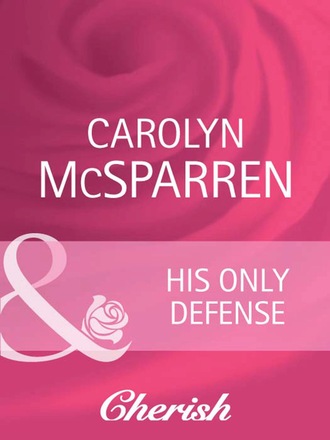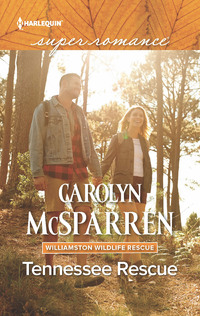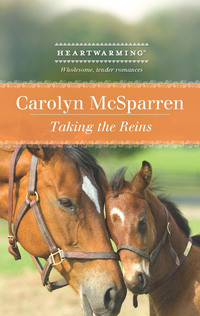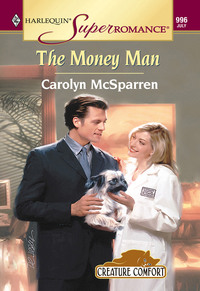
Полная версия
His Only Defense
What would Liz Gibson ask him over breakfast? He found he was actually looking forward to seeing her again. That was crazy, considering their adversarial relationship.
Jud had no idea whether married detectives wore wedding rings on the job or not. He hoped Liz Gibson wasn’t married, although there wasn’t much he could do about that under the present circumstances. It was nice to meet a woman as tall as Liz, who looked cool enough to handle a gorilla on a rampage. He hated being around fragile little women. He was always afraid he’d break them.
That was one of the reasons he’d been attracted to Sylvia. She’d been so sure of herself, so confident. She hadn’t looked or acted breakable.
Nor had she turned out to be. He didn’t think a thermonuclear explosion could have shaken her, but he hadn’t known that when he fell for her.
Seven years was a long time to be celibate. Jud had managed for three before he allowed himself to be swept into an affair with the wife of one of his clients. Separated, but still officially married, as he was. He wasn’t particularly proud of himself, but they’d parted friends, when she went back to her husband.
Since then there’d been a couple of other women. He’d been up-front about the fact he still considered himself married and unavailable for anything except a casual relationship. Some women saw it as a challenge. He knew that on some level he was a catch, even with a teenage daughter as part of the package.
Suspicion of murder, however, was not an added inducement, particularly when the victim was his wife. Having a fling with the police detective who was trying to prove he was a killer was a very bad idea.
He should have petitioned for divorce years ago on the grounds of desertion, but he couldn’t bring himself to do that to Colleen. He and Sylvia might have been dancing around divorce when she disappeared, but their daughter didn’t know that. Once Sylvia vanished, Jud couldn’t add divorce for desertion to the list of problems Colleen had to deal with. Better to wait the requisite seven years to be safe.
Those first years, he’d expected Sylvia to walk back in the front door as casually as though she had never left. That would be just like her.
But seven years? There was probably a reason that period had been chosen by law in the first place.
He watched Colleen poring over her books. Physically, she took after her mother. Her dark gold hair was streaked by the sun, where Sylvia’s had been expensively streaked in a salon. The effect, however, was much the same. Colleen had her mom’s elegant bone structure and natural grace. Not that you could tell after soccer practice.
Her personality wasn’t much like Sylvia’s, thank God. She was basically kind and loving, although at the moment she was going through a bad patch of teenage sulks and temper. His mother-in-law reminded him that these phases would pass, and sooner or later she’d grow into a fine adult. If he lasted that long.
Colleen usually looked and acted normal, but he knew how fragile she was inside. He and Irene worked diligently with her teachers, counselors and coaches to prop up her self-esteem. At age seven, children often fear anything bad that happens was somehow their fault. Colleen believed her mom had left because she herself failed her in some way.
The sad truth was that Sylvia had never wanted children, had wanted to abort the fetus she found she was carrying the year after Jud and she married. Only fear of her own father’s wrath made her carry the child to term.
Maybe if they’d had a boy…
But seeing Colleen at fourteen, Sylvia would have considered the beautiful girl competition. On some level, he supposed, many women felt twinges of jealousy as they watched their daughters grow into young women, no matter how much they loved them. Sylvia would have done everything she could to cut Colleen down to size. That was not normal.
In the countless counseling sessions he’d attended since Sylvia’s disappearance, he’d learned that children, like cats, tended to be most devoted to people who were not attracted to them. They clung to the abusive parent.
Jud knew Colleen loved him, but she’d fought as fiercely as a seven-year-old could fight for her mother’s love. She had to believe Sylvia was dead.
He still believed Sylvia was sitting pretty with a new life and a new identity. Maybe on the Riviera or the Costa Brava. Maybe in Canada or Brazil. He had no doubt she could come up with a stake or a sugar daddy.
The dirty casserole pan wouldn’t fit into the dishwasher, and would never get clean without elbow grease, anyway. He set it in the sink and went to work on it with a scrubbing pad. The meal had turned out rather well for a first attempt at a new recipe. Shrimp and pesto and fettuccine noodles topped with cheese. He’d add it to his arsenal of one-dish recipes.
He’d always done the cooking, even when Sylvia was still with them. In the seven years since, he’d become pretty fair at it. He wished Colleen would show more interest in learning.
“I’ll never be as good as you are, Daddy,” she said whenever he tried to entice her into fixing dinner for them. Teenage shorthand for “I don’t want to.” He let her get away with it.
Shoot, he let her get away with nearly everything. So far she hadn’t pushed him too far, but sooner or later she’d put him in a position where he’d have to lower the boom. He wouldn’t be doing her any favors if he let her get into bad stuff. The world would not make allowances for her.
He prayed she’d stay a good kid, and that Irene would know how to deal with tantrums or boys or drugs or alcohol or tattoos or fast cars or Goths.
Colleen didn’t realize it, but her life was much happier without her mother, just as his was.
But the policewoman could make both of their lives a living hell. He’d have to keep her away from his child.
“HEY, MA’AM, THAT’S NOT a good place to park.”
Liz stood beside her unmarked car and looked around for the source of the voice. She saw an old man standing beside a small brick ranch house set back in the woods on her side of the road. She could barely glimpse the house through the closely planted pines. She leaned on her door and called, “May I park in your driveway? I’d very much like to speak to you if you’ve got a minute.”
“Sure. Better move your car before somebody comes flying around that curve and creams you.”
She moved the car. As she climbed out, the man walked over to her, removing his beat-up John Deere cap with the aplomb of a Victorian gentleman.
“Folks in the country drive twenty miles faster than the road can handle.” He grinned. “Can’t tell you how many accidents I’ve seen on that curve in the forty years I been living out here.”
She stuck out her hand and told him her name and her business.
She could feel the bones in his fingers, but the skin felt like well-tanned leather. His face looked like leather, as did the scalp that showed through his sparse white hair. He shoved his cap back on his head. “Name’s Taylor Waldran, ma’am. Lord, don’t tell me y’all are trying to find that woman’s body again.”
“Again?”
“Every couple of years some cop comes by to talk to me about what happened that night. I tell him the same thing. I have no idea. It was pouring rain. The wife and I stayed inside by the fireplace. Saw nothing, heard nothing. Didn’t find out about the car being abandoned till the next morning.” He waved a hand at his lawn and the pines. “The riders used our front lawn as the staging ground for the hunt.”
“You said riders?”
“Yes’m. There’s a bunch of riders brings their walking horses and hounds whenever somebody disappears in the woods, and Putnam’s over there’s been part of the Wolf River Conservancy for twenty years. At first they thought the woman might have wandered off and died of exposure or drowned in one of them marshes, but they never did find one single trace of her.” He shook his head. “My Vachie kept the cookies coming and the coffeepot hot for three days.”
“Could I speak to her?”
“No, ma’am. Gone these three years.”
“I’m sorry for your loss.”
“Thank you. Hard to be alone after fifty-three years. My grandkids want to move me to town into some kind of zero-lot-line old folks apartment, but I ain’t havin’ none of it.”
An obese basset hound with a gray muzzle meandered off the front porch and slumped down beside Mr. Waldran’s knee. The dog definitely looked more than seven years old. “That night the woman went missing, did your dog hear anything?”
“Maizie?” He laughed and reached down to scratch the basset’s long ears. “She’s been stone deaf for years and too lazy to hunt a cold biscuit.”
“What about the hounds? Did they find any trace of her?”
“Ma’am, by the time they started looking, the rain had been pourin’ down for hours. Any scent might ’a been there would ’a been long gone. On t’other hand, if he’d buried her, would ’a washed away the soil some, but didn’t find no sign of a grave, either.”
“Could she have walked away and abandoned her car?”
“In that weather? Had to be a mighty good reason to leave a perfectly good car sitting on the side of the road with the motor running, the door open and the dome light on.”
“Could she have stopped to help someone and been abducted?”
“That’s what they thought at first, but that husband o’hers swore she’d never do something that dumb. Besides, she carried a gun in the car. Had a permit and everything. It was still there. If she’d gotten out of the car, she’d ’a took that gun, if she had a lick o’ sense.”
“What did you think of the husband?”
“Seemed like a nice man. Real cut up. My Vachie tried to look after him some. ’Course, those detectives thought from the get-go he killed her.”
“So they were just going through the motions on the search?”
“Oh, no, ma’am. They didn’t let up for three solid days. Had them crime scene folks here, but wadn’t nothing to find after that downpour. After a while I guess they just gave up.”
Liz thanked Mr. Waldran and asked if she could leave her car while she walked across the road to look in the woods. He agreed and went back into his house. Maizie lumbered after him.
Contemplating the curve of the road, Liz was as surprised as Mr. Waldran that someone hadn’t come around the corner and smacked into Sylvia’s car all those years ago, especially since the driver’s-side door had been open.
Though the rain had stopped earlier, mist still hung in the cold air, Liz noted with a shiver. A little more moisture and mud wouldn’t make much difference at this point.
She walked across the road and stood on the narrow grass shoulder to stare down into the water-filled ditch. If Sylvia needed help or refuge, surely she’d have headed up the driveway to the Waldran house. Mr. Waldran and his wife had both been investigated at the time, to make certain they hadn’t kidnapped and done away with Sylvia.
Both had come up clean. He was a deacon of the Camp-belltown Baptist Church. Pillars of the community, they’d raised four children and had a dozen grandchildren. Neither was senile or paranoid. There had been no sign that Sylvia had been in the house or the garage.
The obvious solution was that someone had stopped her on the road somehow, abducted her or killed her and hidden her body too well for it to be found, probably a long way from the scene.
She wouldn’t have braked for someone she didn’t know. She wouldn’t have gotten into a car with a stranger. If she’d been accosted, she’d have used her gun to protect herself.
Her car had not been dented or disabled, proving she hadn’t been rammed by another vehicle, and stopped to check the damage. Who else but her husband would even know she’d be alone on this road at night?
The one person she would have stopped for was big Jud Slaughter.
CHAPTER FIVE
“DADDY,” COLLEEN SAID, “who was that lady, the one you arranged to have breakfast with? She’s not one of your clients.”
Jud turned his truck into the parking lot of Hamilton’s Academy for Young Ladies and joined the line of SUVs, crew-cab pickups and fancy sedans also dropping off girls for school. He debated whether to tell her the truth and let her stew all day, or make up something he’d have to refute later. “How’d you know she’s not a client?”
“Those slacks came from someplace like Target, for one thing. And ladies who can afford your houses always wear gynormous diamond rings and carry Coach handbags for every day. She’s not married.”
He glanced at his daughter in amazement. She was fourteen! How could she possibly identify where the woman’s slacks came from, or be aware of purses and jewelry? “What do you study in that fancy school of yours?” He pulled into the unloading zone, stopped and turned in his seat.
“You always say it pays to know quality,” she said with a cheeky smile. Leaning over, she gave him a kiss, slid out of the car, waved at a couple of other girls with long blond hair and ran up the stairs to the front door.
She’d forgotten to ask him again about Liz Gibson, but she’d remember sooner or later. He’d have to respond, but he’d have a better idea of how much he needed to tell her after breakfast.
When he walked into the diner, Liz was already sitting in a booth. She was reading the morning newspaper and drinking orange juice. He took a moment to assess her from the doorway.
Good-looking. Maybe late twenties, early thirties. Probably divorced, probably children. Well-spoken. He wondered how long she’d been a detective, because she obviously worked out. The homicide detectives who’d ridden roughshod over him seven years ago had not, but they’d been older. One dyed his hair blue-black, the other carried his paunch in front of him like a baby bump. Why were they not the ones reopening the investigation? Did they think he’d respond better to a woman?
In her case, they might be right. He’d liked her forthright hazel eyes, and the brown locks she pulled back in what his daughter called a scrunchie. Made him want to ease if off and find out what she looked like with her hair down. He’d also be willing to give his business partner, Trip Weichert, good odds that there wasn’t a single drop of silicone in what Trip would call her “rack.” Nice rack, too. Just about the right size to fit into the palms of his hands.
Altogether a very beddable specimen. If he were in the market, and if bedding a detective wasn’t about the most dangerous notion he’d ever had.
She must have felt his eyes on her because she looked up, saw him, folded the paper and set it beside her cup. No welcoming smile, however. Very serious lady.
They greeted each other, but she didn’t offer to shake hands. He sat opposite her, and before he spoke, Bella, his regular waitress, put a cup of coffee in front of him. “Morning, Jud. Your usual?” she said.
“Did you order?” he asked Liz.
“Yeah, she did,” Bella answered, and turned back toward the kitchen.
“I don’t think she approves of me,” Liz murmured.
“She doesn’t approve of anybody that hasn’t been eating here for at least ten years.”
Liz took a business card out of her pocket and shoved it across the table. “This is my extension and my cell phone. If you need to speak to me, don’t hesitate to call.”
“You mean if I want to confess?”
“I didn’t say that. You might think of something you didn’t tell the other detectives. So, shall we get down to it while we wait?”
Jud shrugged. “You’ve undoubtedly read the files. I don’t have anything to tell you that wasn’t in them.”
“Humor me. For example, why was your wife driving home by herself at eight o’clock at night?”
“Sylvia was branch vice president of the Marquette National Bank. She usually worked late on Friday nights. The bank stays open until seven on Fridays, then she made certain whatever bankers do after hours got done.”
“You don’t know?”
“Not precisely, no. She liked working alone after everyone left. She wasn’t a morning person, so she didn’t go in to work early. She blamed it on her internal clock.”
“Your daughter wasn’t home?”
“She was spending the night with my in-laws. She frequently does that on Friday and Saturday nights. They live in Germantown.” He grinned. “That means closer to malls and movies.”
“She was only seven?”
“At that age she conned her grandmother into shopping and the latest Disney.”
“I’m speaking to Mrs. Richardson later this morning.”
That sounded vaguely like a threat. “Irene will tell you the same thing, Miz Gibson.” But Herb wouldn’t. She’d get a real earful if he was home.
Bella plopped a big glass of iced tea down in front of the detective and filled Jud’s coffee mug. They waited until she was out of earshot again.
“Listen, do you mind if we switch to first names? Seems more informal,” Liz said.
Jud was a bit surprised. “Sure. I’m Jud.”
“And they call me Liz that do speak of me.”
“Certainly not Liz the cursed?”
She laughed—the first time he’d heard her laugh. He loved it. A Shakespeare-quoting detective with a laugh like warm honey, and a smile that would melt icebergs in the Bering Strait. It definitely melted him, and warmed parts of his body that he’d rather keep dormant, thank you very much. He’d known she was dangerous, but not this dangerous.
“Certainly not the prettiest Liz in Christendom,” she said.
“Who says?”
The silence was deafening, the look lasted too long and the connection was too sudden. She broke eye contact first, stirred two packets of artificial sweetener into her tea, squeezed the lemon and drank greedily. He did the same with his coffee and burned the roof of his mouth.
“Uh, what’d you fix?”
“I beg your pardon?” he asked.
“The file says you cooked dinner that night. What’d you fix?”
No one in all those hours of interrogation and interview had asked him that. “It was seven years ago.”
“Come on, Jud, you might not remember what you had for dinner last night, but I’ll bet you remember the menu that night.”
As a matter of fact he did. The other detectives had asked him why he was the one doing the cooking, but not the menu. He took a breath as though trying to remember, then said, “I picked up a roast chicken at the grocery on the way home from the job I was working. And some fresh asparagus.”
“Expensive in November.”
He shrugged. “Sylvia liked it. I poached it in chicken stock until it was just crunchy, and thawed some brown rice in the microwave. I make it in big batches and freeze it in portions. Takes forty-five minutes to an hour to steam from scratch and only ten minutes to heat up in the microwave. That’s it.”
“What about rolls?”
He shook his head. “Two starches at one meal.”
“Dessert?”
Again he shook his head. “Watching our weight. Sylvia never has a problem, but I have to be careful.”
“To drink?”
“We’d opened a bottle of pinot grigio the night before and stashed the rest in the refrigerator. There was enough left for a couple of glasses each. I poured myself one when Sylvia called to tell me she was on her way.”
“Then?”
“There was boxing on Showtime. I sat down to watch it. I’d been out on the site most of the day in the cold rain, so that one glass of wine put me right to sleep. The boxing must have been boring. I really don’t remember who was fighting, but it wasn’t a championship match or anything. When I finally woke up, I realized Sylvia wasn’t home yet. It was nearly midnight.”
“What did you do?”
“Tried her cell phone. No answer. There are a couple of places along that road where you can’t get decent reception, particularly during bad weather. I figured she’d had a flat or something and couldn’t reach me. I dashed some cold water on my face to wake up, grabbed my coat and headed out to find her.”
Bella slapped down two plates in front of them. Jud’s held at least three eggs, bacon and wheat toast. Liz’s held a toasted English muffin.
Jud might worry about his waistline, although Liz couldn’t see that he had any problems in that department. Obviously he wasn’t bothered about cholesterol. She wished she’d indulged in at least an omelet or an order of bacon.
His answers had been interesting. He’d said Sylvia has, not had. Did he really believe she was still alive, or had he coached himself to use the present tense?
Liz would be willing to bet nobody had ever asked him what he’d cooked for dinner. The original detectives, Sherman and Lee, whose names had no doubt given rise to a million jokes during their partnership, were both middle-aged, had probably been horrified to find that Jud did the cooking for his family and had abandoned the subject.
He could have fixed the entire meal in ten minutes, leaving more than enough time to commit the killing and hide the body. The one call that had been logged from Sylvia’s cell phone that night had originated from the tower closest to her office. In his original interview, Jud had said that she called every night as she was leaving to give him her ETA so he could get dinner ready. She had not attempted to phone him again, but that call alone would have told him approximately where her car would be and where he could intercept her.
One of the most damning items against him was that his partner, Trip Weichert, said he’d tried to reach Jud at about ten and had gotten the answering machine. Jud had said in his original statement he must have slept through the call.
Maybe. Liz—who couldn’t bear to let the answering machine pick up even if she knew the caller was from a magazine subscription service—had never slept through the ringing phone. He must really have been dead to the world.
Or simply not there to pick up.
“So, Jud, between us, what do you think happened that night?” She leaned forward and gave him her full attention.
He, on the other hand, leaned back and folded his arms across his chest. She’d been taught to read people’s body language. His signified avoidance, protecting himself, distancing himself. When he spoke, however, he lowered his eyes and took a deep breath, but did not look down and to the right. That was a liar’s look. Dead giveaway. Either he was trying to tell the truth, or he’d practiced so long it had become the truth to him.
“I think she had arranged for somebody to pick her up, and left her car that way so we’d think she’d been abducted, and would stop looking for her quicker.” He raised his eyes. “It worked.”
“We couldn’t find evidence of a pickup by any of the rental-car agencies or taxis, even the ones that will drive that far out,” Liz responded. “With all the publicity at the time, surely any taxi or rental-car company would have come forward.” She shrugged. “The alternative is a colleague, a friend or a lover. No evidence was ever found for any of those.”
He started to say something, then stopped.
“If you know of any lover, or even a possible lover, I’d suggest you give me a name.”
“I don’t. To the best of my knowledge, Sylvia was not having an affair at the time she disappeared.”
“Were you?”
“What? No, of course not.”
“But you’ve had affairs since she disappeared.” Liz made her comment a statement, not a question. She didn’t know whether he’d slept around or not, but he would assume she’d traced his lovers. Or she hoped he would.
The man actually blushed. With shame or guilt?
“Lady, it’s been seven years since my wife disappeared. What do you think?”
“I’d like to talk to the ladies.”
“You find them, you talk to them. I’m not giving you any names. Believe me, there are damn few of them to find. What difference does it make, anyway? I was a completely faithful husband until long after Sylvia disappeared.”
It made a great deal of difference to Liz. She’d find those women and interview them—no, interrogate them, until they admitted their liaisons with Jud. Who knew what he might have let slip to a lover? “I don’t need no stinkin’ divorce,” for example. She pushed her empty plate away. Jud pushed his plate back, as well, although most of his farmer’s breakfast lay congealing on it.







